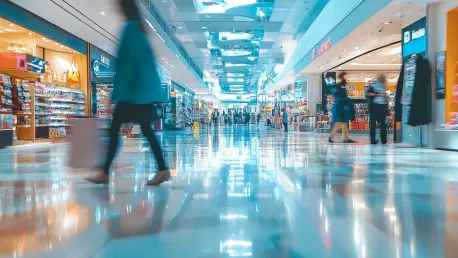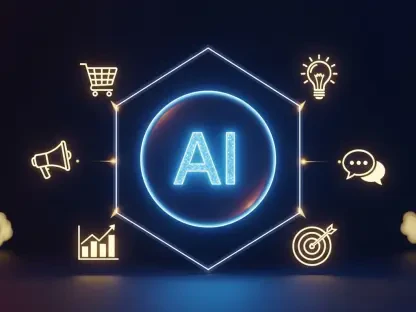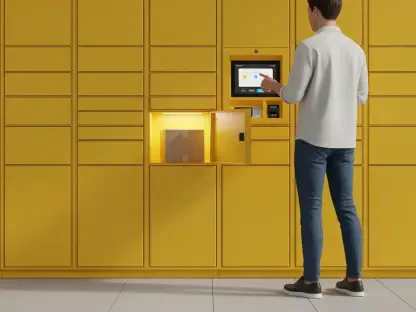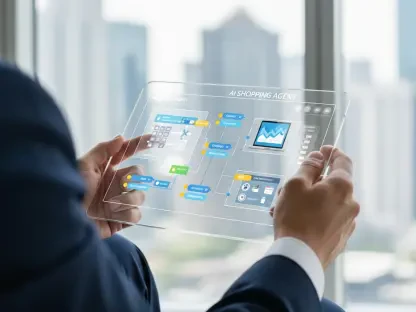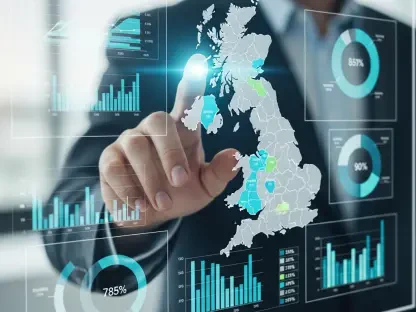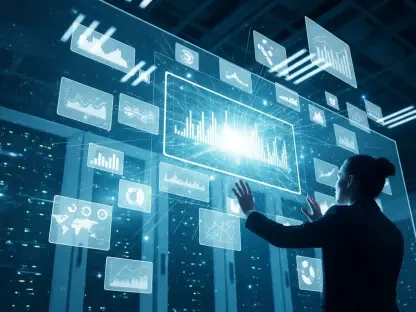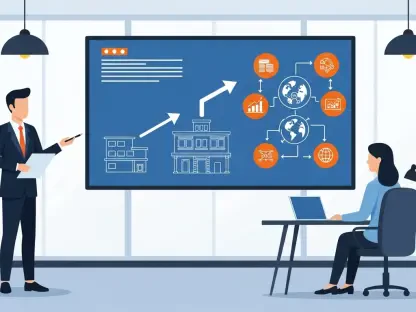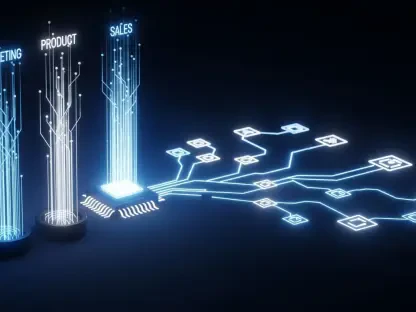The retail industry is undergoing a transformative shift, largely driven by the adoption of the Internet of Things (IoT). This innovative technology reshapes how retailers conduct operations, engage with customers, and strategize for the future. By leveraging IoT, retailers can streamline processes, enhance customer experiences, and stay competitive in a rapidly evolving marketplace. Amid the digital revolution, IoT stands out for its ability to connect devices and systems, fostering a seamless information flow that transforms traditional retail practices. As we move towards an increasingly connected world, understanding how IoT influences retail operations and sales is essential for industry stakeholders aiming to stay ahead of the curve.
Enhancing Inventory Management
Efficient inventory management is critical for retail success, and IoT is revolutionizing this aspect. IoT-enabled smart shelves and RFID tags provide real-time inventory tracking, reducing the risk of stockouts and overstock situations. Retailers can monitor inventory levels accurately, optimizing stock replenishment and minimizing carrying costs. IoT solutions also offer predictive analytics, allowing retailers to anticipate product demand based on historical data and trends. By understanding future needs, retailers can adjust their inventory strategies accordingly, ensuring that popular items are always available while minimizing excess inventory. This leads to improved operational efficiency and customer satisfaction.
Furthermore, automated inventory systems enabled by IoT reduce manual labor, freeing up staff to focus on customer service and other critical tasks. The integration of IoT in inventory management offers a seamless, real-time approach to inventory control, driving better decision-making and operational excellence. Retailers adopting IoT can thus ensure a more efficient and responsive inventory management system, capable of adapting to the dynamic market demands. Whether it’s a small boutique or a large supermarket chain, the advantages of IoT in inventory management are universally essential, underscoring its transformative potential across the retail landscape.
Personalizing Customer Experiences
In today’s competitive retail landscape, providing personalized customer experiences is crucial for retaining and attracting customers. IoT plays a significant role in this by collecting and analyzing vast amounts of customer data through various touchpoints such as smart devices, sensors, and mobile apps. Data collected from IoT devices allows retailers to understand customer preferences, behaviors, and purchase patterns, enabling the creation of tailored marketing campaigns and personalized product recommendations. IoT-driven insights help retailers deliver relevant and timely offers, enhancing customer satisfaction and loyalty. Moreover, IoT empowers retailers to offer a more interactive and engaging shopping experience.
For instance, smart mirrors in fitting rooms can suggest products based on customer preferences, and mobile apps can provide navigation assistance within stores. These personalized interactions not only improve the shopping experience but also drive sales and foster brand loyalty. IoT’s role in customizing customer experiences extends beyond merely offering product recommendations; it involves creating a holistic and immersive environment that resonates with individual shoppers. By embracing IoT, retailers can ensure that every interaction is meaningful, fostering deeper connections with their customers.
Streamlining Supply Chain Operations
The supply chain is a critical component of retail operations, and IoT technologies are enhancing its efficiency and transparency. IoT devices such as GPS trackers and sensors provide real-time monitoring of goods in transit, ensuring timely deliveries and reducing the risk of lost or damaged shipments. IoT-enabled supply chain management systems offer end-to-end visibility, allowing retailers to track products from manufacturers to store shelves. This transparency helps optimize logistics, reduce lead times, and manage inventory more effectively. By leveraging IoT, retailers can respond quickly to disruptions and maintain a smooth, resilient supply chain, ensuring a higher level of reliability and customer satisfaction.
Additionally, IoT facilitates better collaboration between retailers, suppliers, and logistics providers. Real-time data exchange enables seamless coordination, improving efficiency and reducing operational costs. The integration of IoT in supply chain operations ensures that retailers can meet customer demands promptly and maintain a competitive edge. The enhanced visibility and collaboration fostered by IoT lead to a more agile and responsive supply chain, capable of adapting to market changes and consumer expectations. In an era where supply chain disruptions can significantly impact business operations, IoT provides the tools necessary for maintaining continuity and excellence.
Driving Sales through Smart Retail Environments
The concept of smart retail environments is gaining traction, with IoT at its core. Smart retail environments utilize IoT devices such as sensors, beacons, and smart lighting systems to create a connected, intuitive shopping experience. These technologies provide valuable insights into customer behavior and preferences, driving sales and enhancing customer engagement. For example, IoT-enabled beacons can send personalized promotions to customers’ smartphones based on their location within the store. This targeted approach increases the likelihood of purchases and boosts overall sales. Smart lighting systems can also be adjusted to highlight specific products or create an inviting ambiance, influencing customer behavior and enhancing the shopping experience.
Furthermore, IoT allows for seamless integration between online and offline retail channels. By connecting physical stores with digital platforms, retailers can offer a unified shopping experience. Customers can check product availability online, reserve items, and pick them up in-store, enhancing convenience and driving sales. The ability to merge various shopping channels through IoT not only improves customer satisfaction but also allows retailers to gather comprehensive data across all touchpoints. This integration supports a cohesive and robust retail strategy, ensuring that customer expectations are met, whether they shop online or in physical stores.
Improving Customer Relationship Management (CRM)
Customer relationship management is essential for building long-term customer loyalty, and IoT provides valuable tools to enhance CRM strategies. IoT devices collect real-time data on customer interactions, preferences, and feedback, enabling retailers to understand their customers better and tailor their CRM efforts accordingly. IoT-driven CRM systems can automate and personalize customer communications, ensuring that customers receive relevant information and offers. For instance, retailers can send personalized follow-up emails after purchases, recommend products based on past purchases, and offer exclusive deals to loyal customers, fostering stronger customer relationships and boosting retention.
Additionally, IoT technologies enable proactive customer service. By monitoring customer usage of smart products, retailers can identify potential issues before they become significant problems. This allows for timely intervention and support, enhancing customer satisfaction and loyalty. IoT in CRM ensures that retailers can provide a seamless, personalized, and proactive customer experience. By leveraging IoT, retailers can move beyond reactive service models to a more predictive and insightful approach, strengthening customer relationships and driving sustained business growth.
Navigating Macroeconomic and Microeconomic Influences
The retail industry is experiencing a significant transformation, primarily due to the widespread adoption of the Internet of Things (IoT). This cutting-edge technology is revolutionizing how retailers operate, interact with customers, and plan for the future. By integrating IoT, retailers can optimize their processes, elevate customer experiences, and maintain competitiveness in a swiftly changing market. In the midst of this digital revolution, IoT is notable for its capacity to link devices and systems, promoting a seamless flow of information that redefines traditional retail practices. For instance, smart shelves can alert store managers when stock is running low, and connected cameras can track customer behaviors and preferences, providing valuable insights for personalized marketing. Additionally, IoT enables better inventory management and energy efficiency, making operations smoother and more cost-effective. As we advance toward an increasingly interconnected world, grasping how IoT impacts retail operations and sales is crucial for industry stakeholders who aim to stay at the forefront of innovation and remain competitive.
